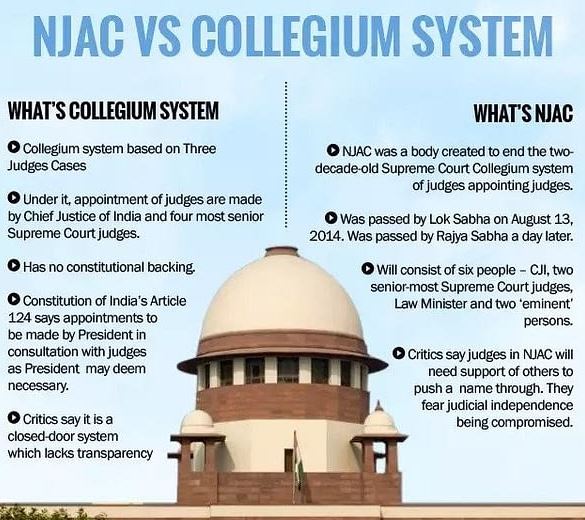The Collegium System and the National Judicial Appointments Commission (NJAC) are two mechanisms for judicial appointments in India that have been subject to much debate and controversy.
The Collegium System, which was established in 1993, is a mechanism that gives the judiciary primacy over the executive in making appointments and transfers of judges. The system is responsible for making recommendations for appointments and transfers of judges to the President of India. The system consists of the Chief Justice of India and four other senior-most judges of the Supreme Court.
On the other hand, the NJAC was a proposed system that sought to replace the Collegium System. The NJAC was introduced by a constitutional amendment in 2014, and it sought to establish a commission that would include members of both the judiciary and the executive. The NJAC was meant to provide a more transparent and accountable system for judicial appointments.
However, the NJAC was struck down by the Supreme Court in 2015, which held that it was unconstitutional as it undermined the independence of the judiciary. The court held that the NJAC gave too much power to the executive, and it did not adequately protect the independence of the judiciary.

The Collegium System has its own set of criticisms, including lack of transparency and accountability. However, it remains the current system for judicial appointments in India. The issue of judicial appointments continues to be a contentious issue in India, with some advocating for reforms to the Collegium System, while others continue to support it.

